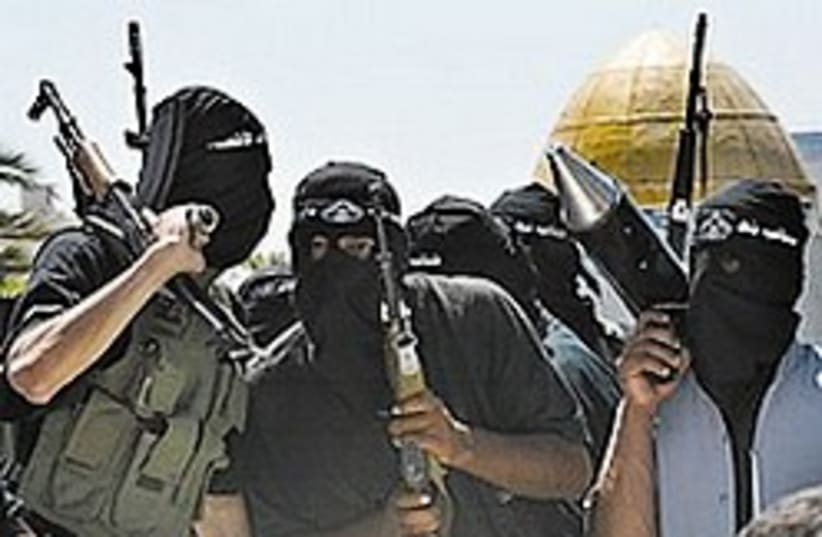"Ireland has been the test bed of all peace plans, right down to the withdrawal and partition. House demolitions, low-intensity conflict, administrative detentions and separation plans - all of these were first tested there," an Irish diplomat once told me. "We invented guerrilla warfare."
In Belfast, as in Gaza City or Nablus, reconciliation is not a word that forms easily on one's lips. But the parallels to our own "troubles" run far deeper than that. It's uncanny, in fact, how similar the conflicts are. Both are sectarian, and both are complicated by extremists. Both are affected by huge Diaspora communities; as much as the Jewish lobby plays a vital role in Washington for Israel, so has the Irish-American lobby pushed the Ireland issue.
History and memory are also inextricably tied to both Ireland and the Middle East, lands where memories are elephantine. The Catholics in Belfast speak bitterly of England's King Billy, though he has been dead for 300 years. Similarly, Muslims speak of the original hudna cease-fire as if it happened yesterday, and not in the Seventh century.
The Northern Irish have noticed these similarities, and embraced them.
The Catholics, from which the Irish Republican Army sprung, sympathize with the PLO and the Palestinians. The Protestants, meanwhile, tend to take Israel's side. (I have even seen Israeli flags flying in Protestant neighborhoods of Belfast!)
Something about the way each side identifies with either "them" or "us" is connected to the way they see life in general.
Take the Protestants. Strong believers in the written word, the Protestants of Northern Ireland tend to see things as black and white, cut and dried. A Protestant wants to know, Are you converted, or not? They see life as a matter of decision.
The Catholics, however, see life as one long process leading down the path of epiphany. Likewise, they understand the peace talks as one long process of acceptance. They find it easier to cope with the transition and vague wording of a peace agreement than with the finality of the act itself.
Protestants, by contrast, get caught up with the wording of the agreement and focus less on the intent. A Protestant is hardly impressed by the IRA's declaration of a cease-fire, for example, but asks, "Would it be permanent?"
Such a here-and-now approach is unfamiliar to the Catholics. Although decommissioning of all IRA arms was to have occurred almost immediately under the terms of 1998's Good Friday agreement, it took a full seven years for the IRA to actually surrender its weapons and completely disarm.
Perhaps this is why the loyalist Protestants, a tight and clannish people with a common beleaguered sense that the land is theirs and the belief they have to be strong to hold on to it, have loved Israelis as much as they loved former Yugoslavian president Slobodan Milosovic and the Serbs for standing up to the world.
That isn't a club that most Israelis would feel comfortable joining. But beyond that quirk, Shin Bet chief Yuval Diskin believes, Israel has a lot in common with Northern Ireland's Protestants when it comes to dealing with the Palestinians.
"The Palestinians are trying to skip over the issue of disarmament. They are trying to reach a deal with Hamas and Islamic Jihad that will keep them off the streets with weapons, but will allow them to keep their weapons at home. We need to demand that they either be disarmed or not allowed to participate in the election," Diskin told me recently.
In this at least, Israel's view is decidedly Protestant. For us, disarming means giving up weapons, not just keeping them at home and out of sight for a while. And that means immediately, thank you.
Unfortunately, PA Chairman Mahmoud Abbas doesn't necessarily see things that way. He is trying to sell Israel a process, like the Catholics in Northern Ireland. It is not an either-or, black-or-white procedure, but a series of steps to reach peace. If Abbas is against terrorism, it is not because he is a pacifist, but because it damages the Palestinians.
His people, too, are split. They see the PA as corrupt, and clamor for the "clean hands" of Hamas. But the public also understands that Hamas as a partner to negotiations is a non-starter. For now, they are torn between the Pyrrhic victories of Hamas's fighting and the prosperous "capitulation" of the PA's cooperation with Israel.
The disarmament of the IRA was the last step in a process in the transformation of mentalities that the Irish and British have experienced in Belfast's deadly alleyways. We and our Palestinian counterparts are still locked in a similar process, racing toward a finishing line that is not yet in view. The Palestinians have not yet come to the same realization that we have, and that the Northern Irish have as well: that the other side won't simply disappear. Until that process is completed, peace doesn't have a prayer here.
| More about: | Northern Ireland, Mahmoud Abbas, Irish Republican Army, Islamic Jihad Movement in Palestine |
